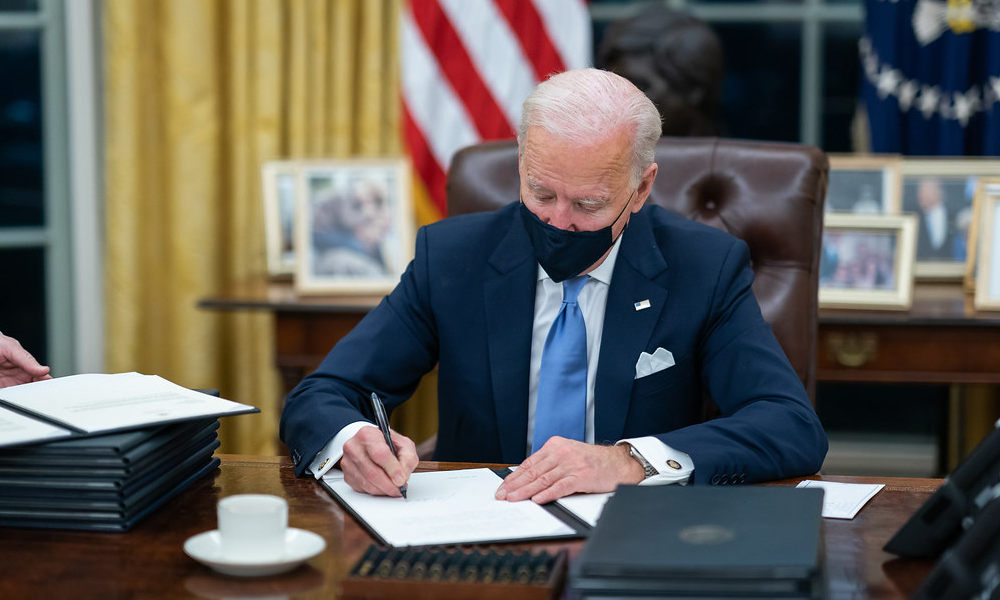Politics
Biden extends national emergency due to COVID-19

President Joe Biden has extended the national emergency for COVID-19, saying the pandemic – which has claimed nearly 1 million lives in the United States alone – continues to cause significant risk to public health and safety.
The national emergency was first declared by his predecessor, Donald Trump, on March 13, 2020, to free up to $50 billion in federal aid and would have automatically expired on March 1. Biden’s decision extends the declaration for another year, unless he decides to end it at an earlier date.
“There remains a need to continue this national emergency. The COVID-19 pandemic continues to cause significant risk to the public health and safety of the nation,” Biden said in a letter to Congress. “More than 900,000 people in this nation have perished from the disease and it is essential to continue to combat and respond to COVID-19 with the full capacity and capability of the federal government.”
The move comes as many states and cities are ending their own emergency declarations against COVID-19. Mask mandates have been dropped in most parts of the country and California has announced that it’s moving to an “endemic” policy for living with COVID-19. Experts, however, warn that new variants are likely to emerge.
The U.S. death toll from coronavirus stands at 936,422 and is expected to reach 1 million in late March, but the Omicron wave – which pushed daily case numbers to record highs – is continuing to decline across the country. Research has shown that Omicron, while highly-contagious, is milder when compared to earlier variants.

-

 US News5 days ago
US News5 days agoJetBlue flight diverts to Tampa after altitude drop injures at least 15
-

 World1 week ago
World1 week agoU.S. Navy helicopter and fighter jet crash in South China Sea; all crew rescued
-

 Legal1 week ago
Legal1 week agoMultiple injured in shooting at Lincoln University in Pennsylvania
-

 World2 days ago
World2 days agoStrong 6.3 earthquake strikes northern Afghanistan; felt across Pakistan
-

 World3 days ago
World3 days ago10 people stabbed on train in Huntingdon, England
-

 World1 day ago
World1 day agoProtesters storm government building in Mexico after killing of local mayor
-

 US News5 days ago
US News5 days agoTrump says U.S. will resume nuclear weapons testing ‘on an equal basis’
-

 US News7 days ago
US News7 days agoDamage reported in Kilgore, Texas following tornado warning




